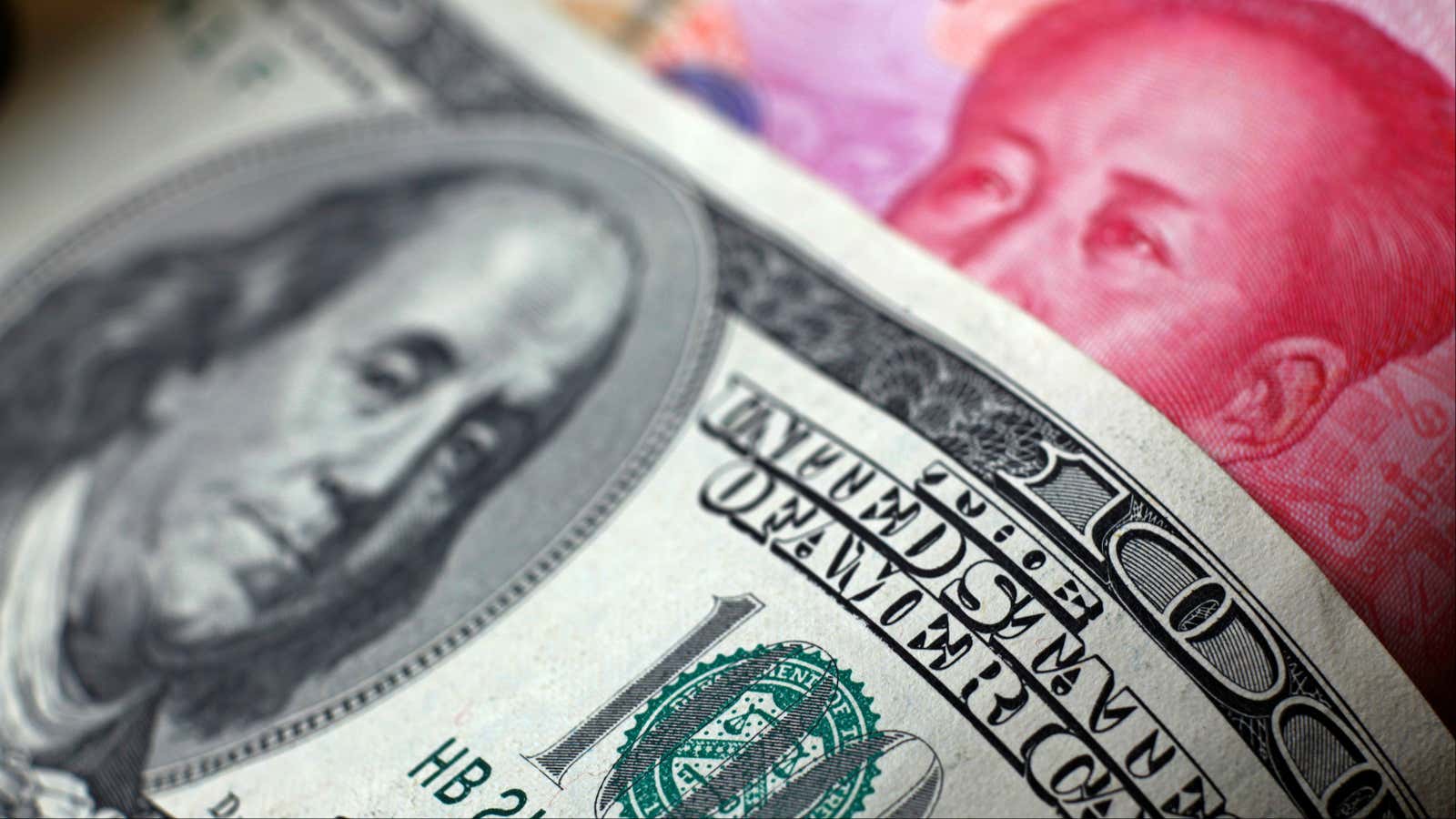As US president Donald Trump this week meets for the first time with Chinese president Xi Jinping at Trump’s Florida golf club of Mar-a-Lago, the stakes couldn’t be higher.
Much of Trump’s campaign trail tenor whirled around the issue of global trade, in which the then-candidate conjured an image of a US that had succumbed to bad deals that sapped American jobs. He blasted the North American Free Trade Agreement (NAFTA) and bemoaned ad nauseam about how “cheating” China had hurt the US manufacturing sector.
Trump rarely spoke in specifics, so the agricultural products that make up one of the top five categories that the US exports to China—accounting for more than $23 billion in business in 2016—didn’t come up. But if US-China relations were to deteriorate into a nationalistic trade war, the shifts in global power would be significant—and food would be a handy weapon in the fight, according to a new report by Dutch financial services provider Rabobank.
Take the 34 million tons of American-grown soybeans that get shipped to China every year as an example.
If China decided to boycott US soybeans, it would shift agricultural power to Brazil, Argentina, and Uruguay. Brazil alone already accounts for more than 48% of the soybeans China imports each year (the US accounts for just over 39%). It’s an unlikely scenario, but a feasible one that would spark massive disruption in the global oilseed markets, Rabobank says.
To be sure, agricultural groups are worried. Already this year the American Soybean Association sent a letter to the White House, urging Trump to deepen economic ties with the Asia-Pacific region. “Our ability to continue to create jobs and support economic growth in rural America depends on maintaining and increasing access to markets outside the United States through existing and future trade agreements,” the letter states.
China exports very little food or agricultural products to the US, but is a big buyer of American soybeans, pork, cotton, and orange juice. If political winds start to shift, there could be a lot of disruption in this area—an important source of income for US farmers, some of Trump’s most enthusiastic voters who also stand to lose the most if the president follows through on his campaign rhetoric.
The US food and beverage industry accounts for some 12% of all American manufacturing jobs, representing more than 15 million Americans.
